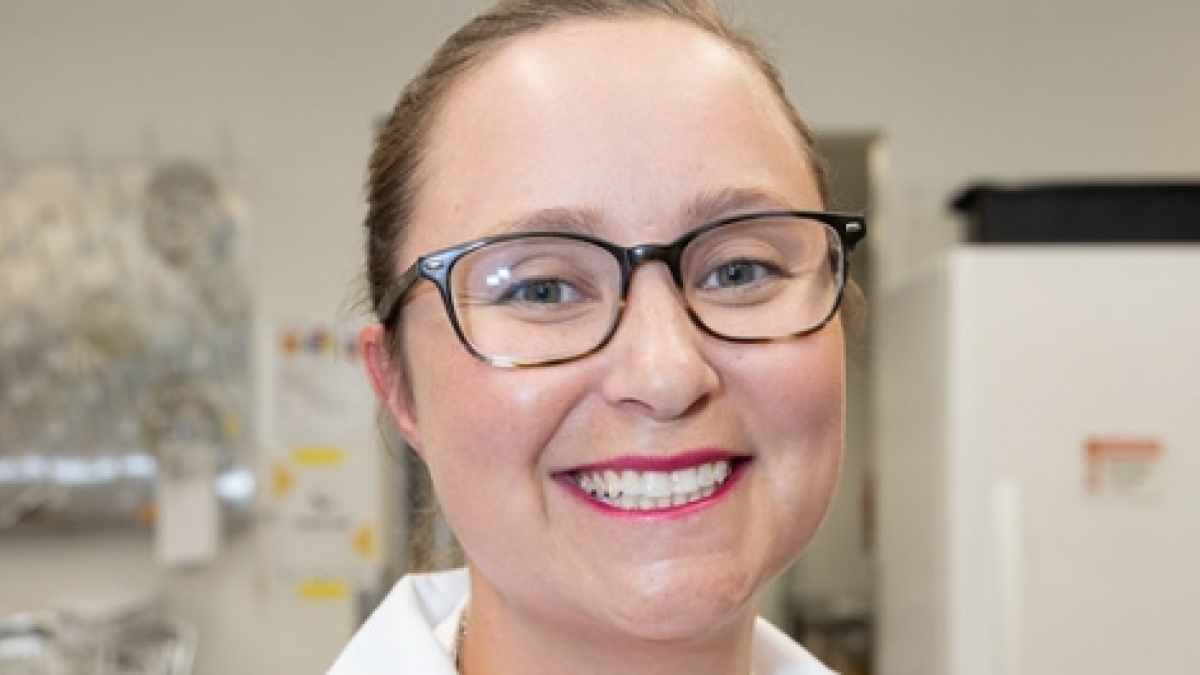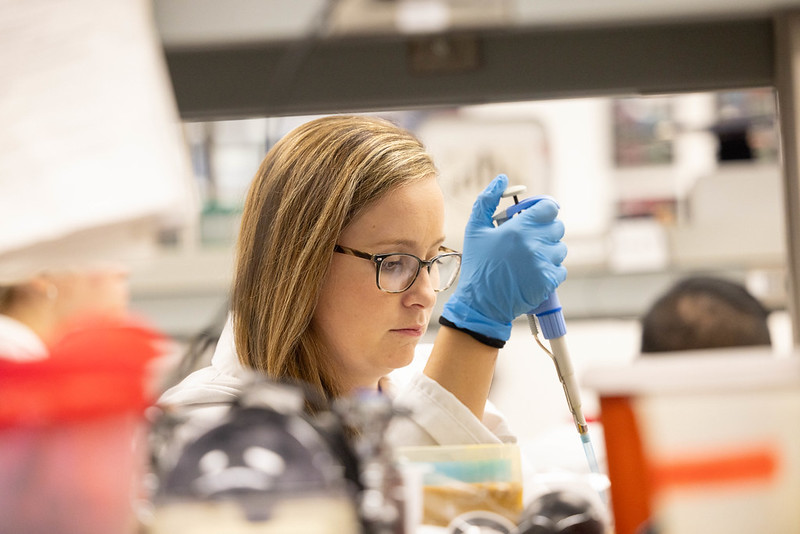Coast Guard service member, ASU grad ready for career transition into medical field

Kimberly Zsuffa is graduating this fall from ASU with a bachelor's degree in biological sciences. Photo by Meghan Finnerty
Editor’s note: This story is part of a series of profiles of notable fall 2023 graduates.
No “aha” moment compelled Kimberly Zsuffa to revisit her career path. But her lifetime of dedication and pursuit of her goals set her down a path for which she will forever be grateful.
The New Jersey native joined the United States Coast Guard 10 years ago, seeing it as a stepping stone to a career full of opportunities.
As a full-time gunner’s mate for the U.S. Coast Guard, Zsuffa needed to find a degree program that fit her schedule. That’s where ASU Online came in.
“The biological sciences program was a perfect fit. It allowed me to take advantage of all the opportunities and learning experiences remotely from anywhere,” she said.
This fall, she will receive her bachelor’s degree in biological sciences with an emphasis in biomedical sciences.
“As a kid, I always watched Discovery Health or other TV shows and, I don’t know, I just thought medicine was incredibly fascinating,” she said. “So after 10 years of service, I decided to change careers. The ability to help people through their challenges... there’s nothing else I would want to be doing.”
As an online student, Zsuffa participated in undergraduate research immersion experiences with The College of Liberal Arts and Sciences.
Through the Online Undergraduate Research Scholars (OURS) program and the School of Life Sciences Undergraduate Research (SOLUR) program, she gained hands-on research experience in biological research.
With the OURS program specifically providing research opportunities to ASU Online students, Zsuffa observed bee behavior online and at an in-person week of lab experiences at ASU’s Bee Lab Annex.
Other research opportunities taught her the importance of research and lab techniques that helped her gain more confidence in the lab.
Outside of the U.S. Coast Guard, she works part time as an emergency room technician and part time as a crisis counselor.
In addition to her bachelor’s degree, Zsuffa is pursuing a master’s degree in biology through an accelerated degree program in The College.
After she completes her master’s degree next fall, she hopes to attend medical school.
Question: How did you get involved with research as an online student?
Answer: I knew I wanted to get involved in research as it is helpful for medical school applications. I was fortunate enough to find research projects through my professors and mentors.
Q: What do you love about research?
A: It is a unique experience. When I tell people about conducting research in the medical field, they think of completing work in a lab, but that’s not always the case. My work is remote for a bio-education lab, and I can do that on the computer from anywhere, which is advantageous to me as an out-of-state online student.
ASU Online student Kimberly Zsuffa during an immersion week experience in March 2023. Photo by Meghan Finnerty
Q: What did you enjoy the most about the in-person lab experiences as an online student?
A: Online students don’t get opportunities to conduct research, but many of us need lab experiences for career development.
It’s also the excitement of it all; coming to campus is almost like a field trip. The personal connection and face time with professors are so helpful to get to know them and get out from behind the computer screen.
Q: Which professor(s) had the most impact on your time at ASU?
A: I thank Katie Cooper, my master’s primary investigator. I’d also like to thank Ara Austin for all her help with organic chemistry; without her help, I would never have made it through that course. Lastly, Susan Holechek, for running the immersion weeks on campus and being the gem of a professor she is.
Q: What advice would you give to a student still in school?
A: As you progress into your degree, it gets more challenging. That’s where discipline took over for me. The ability to commit to my courses and do my best in them has brought me to where I am today.
More Science and technology

Science meets play: ASU researcher makes developmental science hands-on for families
On a Friday morning at the Edna Vihel Arts Center in Tempe, toddlers dip paint brushes into bright colors, decorating paper…

ASU water polo player defends the goal — and our data
Marie Rudasics is the last line of defense.Six players advance across the pool with a single objective in mind: making sure that…

Diagnosing data corruption
You are in your doctor’s office for your annual physical and you notice the change. This year, your doctor no longer has your…


